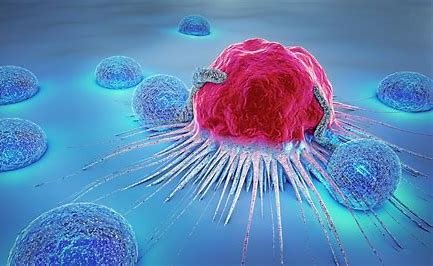iNtRON confirms cancer-controlling effect of PHAGERIA® drug candidate in the organoid model
04 April 2023 | Tuesday | News

According to the company's explanation, bacteriophages have been mainly used for R&D on bacterial infectious diseases, but recently the scope of application of bacteriophages has been expanded to the anti-cancer field by the company. The company has begun to focus on related development and successfully secured a new platform technology called PHAGERIA®. The first target cancer type of PHAGERIA® technology is colorectal cancer (CRC).
Globally, colorectal cancer (CRC) is mainly prevalent in people in their 50s and older (In Korea, 89.3% of CRC patients are in their 50s or older / Source: statistics on the treatment status of the National Health Insurance Service in 2021), and the number of CRC patients for both genders has been increasing every year.
Chromosomal instability (CIN), microsatellite instability (MSI), and CpG island methylator phenotype (CIMP) are mainly described as molecular pathological features of CRC. It is predicted that the essential cause would be not much different from the general causes of cancer, such as genetic factors including family history, aging, smoking, and westernized eating habits, but the actual cause has not yet been clarified.
Recently, attention has been drawn to the possibility that a certain microbiome in the colon can be a major cause of colorectal cancer. Accordingly, there have been may researches regarding the microbiome and the pathogenesis of colorectal cancer along with the isolation and identification of the microbiome associated with colorectal cancer. The reason for this interest is the expectation that effective control of the microbiome in the colon may not only prevent cancer, but also prevent relapse or metastasis after surgery.
Among the various microbiomes, iNtRON Bio is paying attention to enterotoxigenic Bacteroides fragilis (ETBF) and pks+ E. coli, which secrete toxins such as BFT (Bacteroides fragilis toxin) and Colibactin, respectively. iNtRON Bio is working on related researches to develop 'First-in-Concept' drugs to control the harmful microbiome through the phageome.
According to recent reports, the above-mentioned two microbiomes are present in over 70% of colorectal cancer patients and about 60% in normal individuals, indicating that the microbiome is closely related to the onset and progression of colorectal cancer.
To verify the cancer control effect of the PHAGERIA® candidate, a culture method for organoids derived from healthy human colon tissue was established, and induced tumorigenesis by treating them with ETBF and pks+ E. coli. As comparing the cases with or without administering PHAGERIA® candidate, it was confirmed that administering PHAGERIA® candidate significantly inhibited tumorigenesis. Thus, if the microbiome that causes cancer can be maintained in a low level in the body, it may be possible to prevent the recurrence or metastasis of cancer, increasing the utility of PHAGERIA® (phageome) as a new cancer- controlling drugs.
Dr. SON, Ji-soo, the head of the BD Department said that "We are continuously improving the PHAGERIA® candidate material and related platform technologies by using reverse/forward genetic engineering techniques to improve the performance and effectiveness.", and he added that "The bacterial phage-targeted gene editing technology implemented in PHAGERIA® along with PHAGERUS® is our proprietary technology, and we will further strengthen our rights by securing intellectual property rights".
Mr. YOON, Kyung-won, CEO of iNtRON said that "We will accelerate follow-up research and development through partnerships with global companies.", and "We are planning to develop a new Phageome drug through PHAGERIA® platform technology which will be an oral capsule for the easy intake, and we will speed up the development by collaborating with global partners."
Most Read
- How Does GLP-1 Work?
- Innovations In Magnetic Resonance Imaging Introduced By United Imaging
- Management of Relapsed/Refractory Multiple Myeloma
- 2025 Drug Approvals, Decoded: What Every Biopharma Leader Needs to Know
- BioPharma Manufacturing Resilience: Lessons From Capacity Expansion and Supply Chain Resets from 2025
- APAC Biopharma Review 2025: Innovation, Investment, and Influence on the Global Stage
- Top 25 Biotech Innovations Redefining Health And Planet In 2025
- How Health Systems Are Reshaping Drug Adoption, Partner Models, and Market Access in 2026
- The New AI Gold Rush: Western Pharma’s Billion-Dollar Bet on Chinese Biotech
- Single-Use Systems Are Rewiring Biopharma Manufacturing
- The State of Biotech and Life Science Jobs in Asia Pacific – 2025
- Asia-Pacific Leads the Charge: Latest Global BioSupplier Technologies of 2025
- Invisible Threats, Visible Risks: How the Nitrosamine Crisis Reshaped Asia’s Pharmaceutical Quality Landscape
Bio Jobs
- Sanofi Turns The Page As Belén Garijo Steps In And Paul Hudson Steps Out
- Global Survey Reveals Nearly 40% of Employees Facing Fertility Challenges Consider Leaving Their Jobs
- BioMed X and AbbVie Begin Global Search for Bold Neuroscience Talent To Decode the Biology of Anhedonia
- Thermo Fisher Expands Bengaluru R&D Centre to Advance Antibody Innovation and Strengthen India’s Life Sciences Ecosystem
- Accord Plasma (Intas Group) Acquires Prothya Biosolutions to Expand Global Plasma Capabilities
- ACG Announces $200 Million Investment to Establish First U.S. Capsule Manufacturing Facility in Atlanta
- AstraZeneca Invests $4.5 Billion to Build Advanced Manufacturing Facility in Virginia, Expanding U.S. Medicine Production
News











